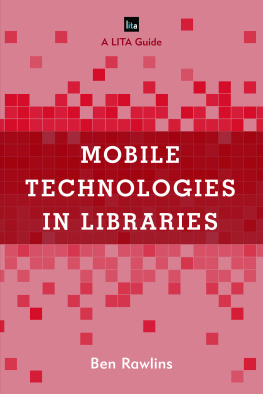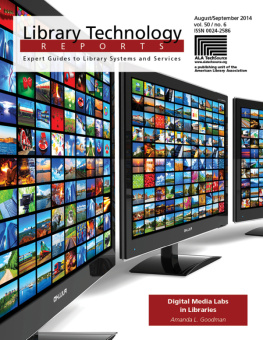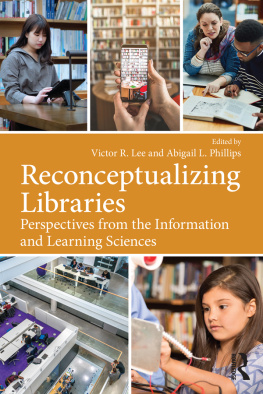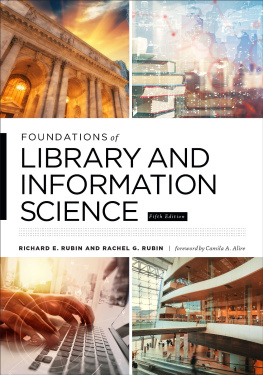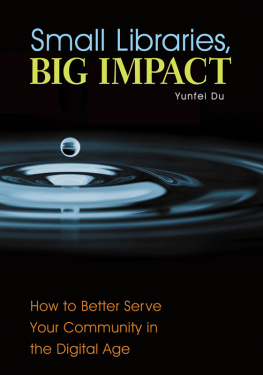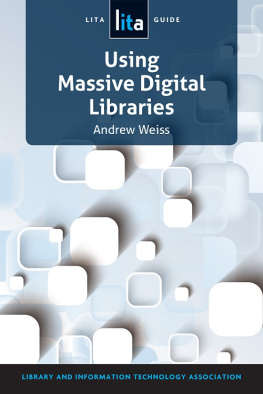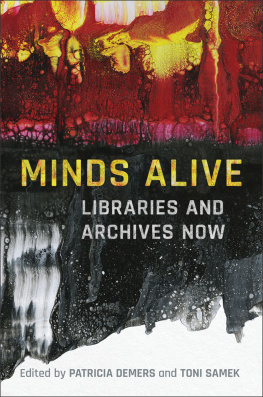Palfrey - BiblioTech : why libraries matter more than ever in the age of Google
Here you can read online Palfrey - BiblioTech : why libraries matter more than ever in the age of Google full text of the book (entire story) in english for free. Download pdf and epub, get meaning, cover and reviews about this ebook. year: 2015, publisher: Basic Books, genre: Romance novel. Description of the work, (preface) as well as reviews are available. Best literature library LitArk.com created for fans of good reading and offers a wide selection of genres:
Romance novel
Science fiction
Adventure
Detective
Science
History
Home and family
Prose
Art
Politics
Computer
Non-fiction
Religion
Business
Children
Humor
Choose a favorite category and find really read worthwhile books. Enjoy immersion in the world of imagination, feel the emotions of the characters or learn something new for yourself, make an fascinating discovery.

- Book:BiblioTech : why libraries matter more than ever in the age of Google
- Author:
- Publisher:Basic Books
- Genre:
- Year:2015
- Rating:3 / 5
- Favourites:Add to favourites
- Your mark:
BiblioTech : why libraries matter more than ever in the age of Google: summary, description and annotation
We offer to read an annotation, description, summary or preface (depends on what the author of the book "BiblioTech : why libraries matter more than ever in the age of Google" wrote himself). If you haven't found the necessary information about the book — write in the comments, we will try to find it.
We live in a world of complex and seemingly infinite information. The ways in which people of all ages use and obtain that information has changed drastically in recent years: e-book readership has increased, Wikipedia has largely supplanted encyclopedias and reference books, and many people now consume news and media through their smartphones, tablets, and laptops. With digital culture ascendant, it seems counterintuitive to argue that libraries, of all things, are more important than ever. But that is exactly what library expert John Palfrey does in BiblioTech, a stirring call to arms that explains how libraries can become bulwarks against the creeping problems of our times: unequal access to education, jobs, and information. Yet the fate of the local library is by no means secure; these institutions are struggling to adapt to our rapidly modernizing world, and often rely on dwindling funding from state and local governments to do so. In order to survive, libraries will need to dramatically shift their focus from maintaining and building up their collections to serving their communities. Print and analog formats will never disappear, Palfrey assures us, but libraries must make the transition to a digital future as soon as possible--by digitizing print material, ensuring that born-digital material (from data sets to blog posts to sound recordings) is accessible to researchers, and making all of this digital information publicly available online. Not all of these changes will be easy for libraries to implement and the process of digitizing collections and training librarians will be complicated and costly. But as Palfrey boldly argues, these modifications are vital if we hope to save libraries and, through them, the American democratic ideal-- Read more...
Abstract: Libraries today are more important than ever. More than just book repositories, libraries can become bulwarks against some of the most crucial challenges of our age: unequal access to education, jobs, and information. In BiblioTech, educator and technology expert John Palfrey argues that anyone seeking to participate in the 21st century needs to understand how to find and use the vast stores of information available online. And libraries, which play a crucial role in making these skills and information available, are at risk. In order to survive our rapidly modernizing world and dwindling government funding, libraries must make the transition to a digital future as soon as possible-by digitizing print material and ensuring that born-digital material is publicly available online. Not all of these changes will be easy for libraries to implement. But as Palfrey boldly argues, these modifications are vital if we hope to save libraries and, through them, the American democratic ideal. --
We live in a world of complex and seemingly infinite information. The ways in which people of all ages use and obtain that information has changed drastically in recent years: e-book readership has increased, Wikipedia has largely supplanted encyclopedias and reference books, and many people now consume news and media through their smartphones, tablets, and laptops. With digital culture ascendant, it seems counterintuitive to argue that libraries, of all things, are more important than ever. But that is exactly what library expert John Palfrey does in BiblioTech, a stirring call to arms that explains how libraries can become bulwarks against the creeping problems of our times: unequal access to education, jobs, and information. Yet the fate of the local library is by no means secure; these institutions are struggling to adapt to our rapidly modernizing world, and often rely on dwindling funding from state and local governments to do so. In order to survive, libraries will need to dramatically shift their focus from maintaining and building up their collections to serving their communities. Print and analog formats will never disappear, Palfrey assures us, but libraries must make the transition to a digital future as soon as possible--by digitizing print material, ensuring that born-digital material (from data sets to blog posts to sound recordings) is accessible to researchers, and making all of this digital information publicly available online. Not all of these changes will be easy for libraries to implement and the process of digitizing collections and training librarians will be complicated and costly. But as Palfrey boldly argues, these modifications are vital if we hope to save libraries and, through them, the American democratic ideal
Palfrey: author's other books
Who wrote BiblioTech : why libraries matter more than ever in the age of Google? Find out the surname, the name of the author of the book and a list of all author's works by series.

